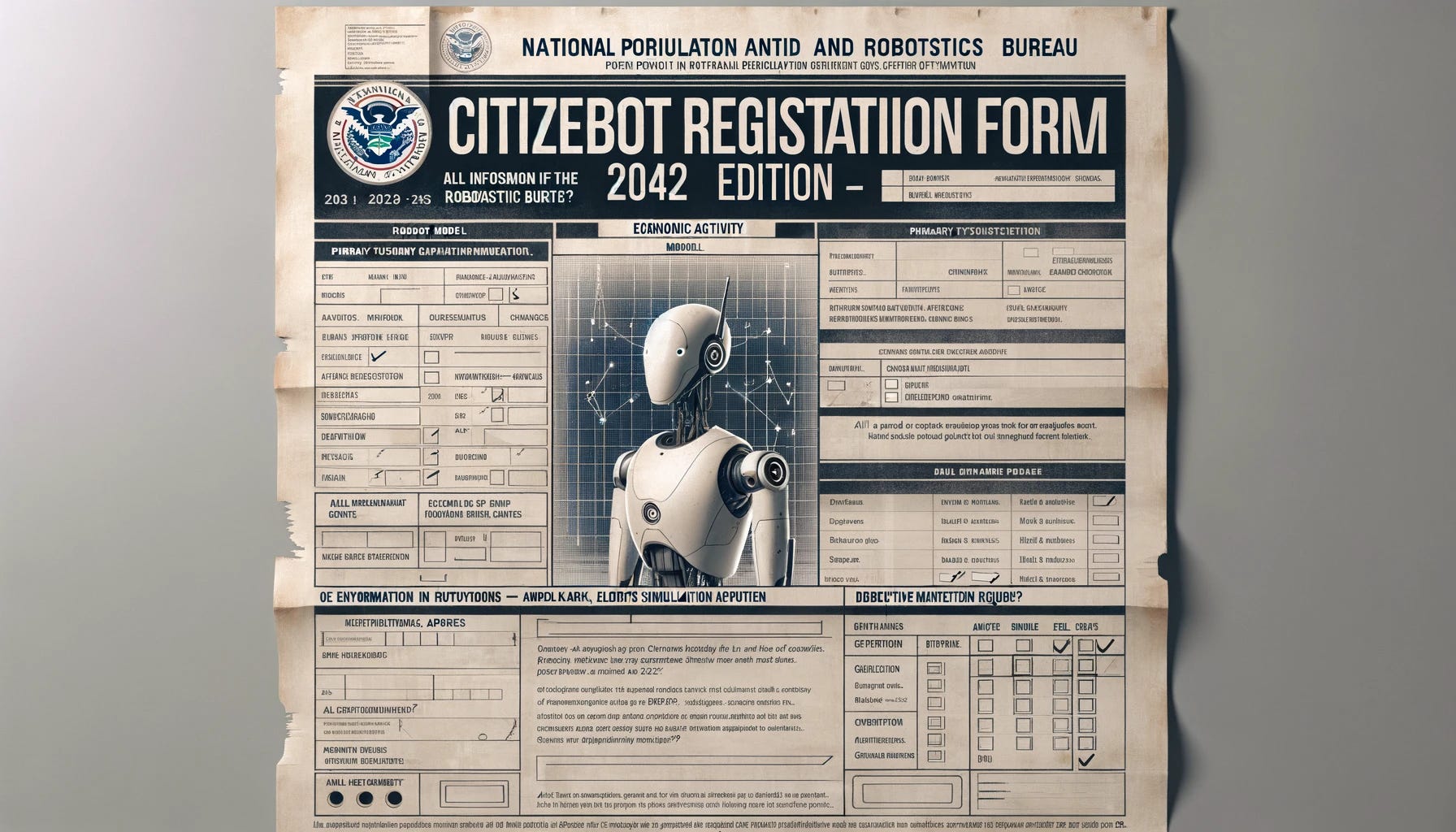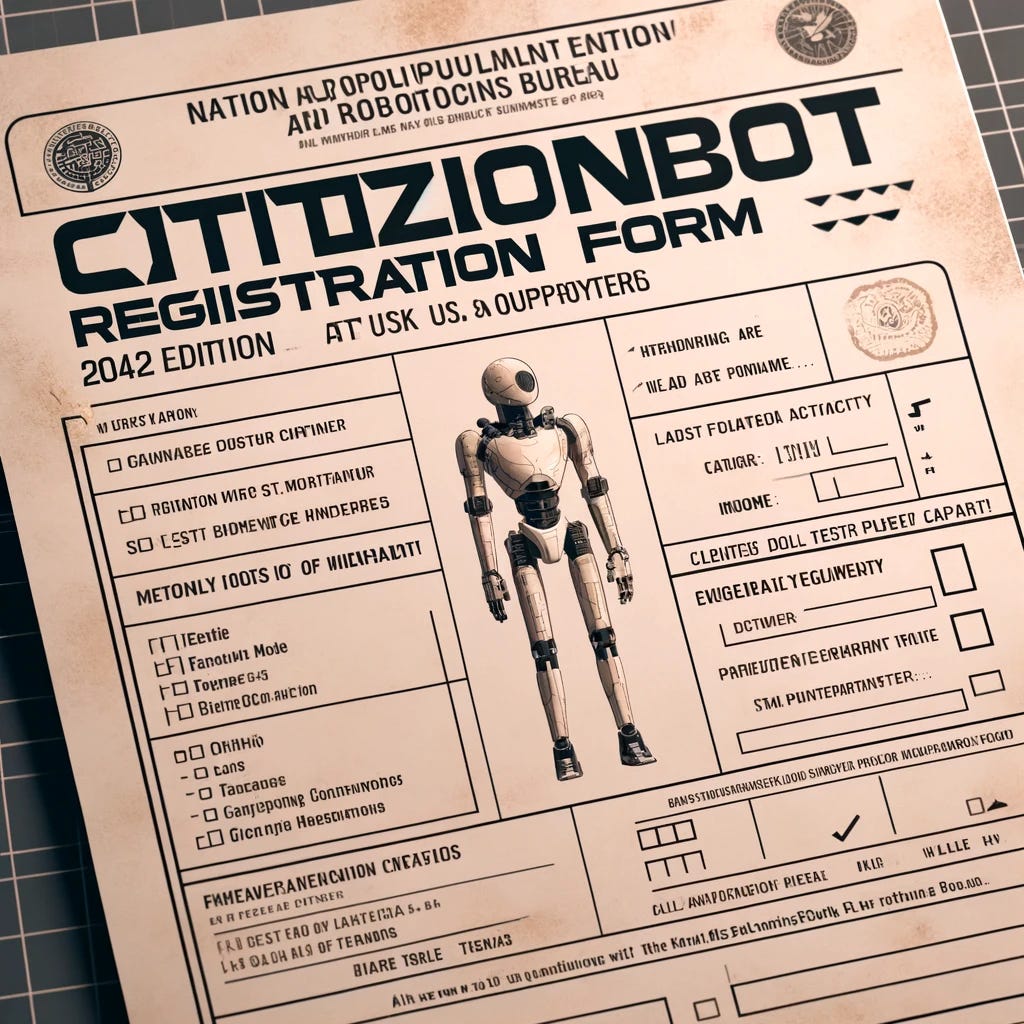CitizenBot Registration Form
Countries bolster dwindling population with robot citizens.
Everything below was generated by a GPT I wrote, called “DFD Concept Helper”. You give it a subject, or tell it what's on your mind, and it will come up with something for you. Including images.The Prompt:
Synthetic citizenship. The idea that robots require mandatory registration so they can be taxed and added to the census to offset a country's dwindling population growth.
The Output:
Artifact: "CitizenBot Registration Form – 2042 Edition"
Description: The CitizenBot Registration Form is a standard government-issued document that surfaced from the year 2042, discovered crumpled in the janky time machine’s glove compartment—a remnant from a timeline grappling with plummeting birth rates and burgeoning robotic populations. This mundane piece of bureaucracy is printed on thin, recycled paper, slightly discolored but legible, sporting the austere logo of the National Population and Robotics Bureau (NPRB).
Content: The form is segmented into sections crisp with bureaucratic jargon, requesting everything from the robot's model and manufacturer to its primary function and latest firmware update. A curious section labeled "Economic Activity" seeks details on the robot’s job role, income level, and tax bracket—yes, these metal citizens pay taxes!
Unique Features: One notable checkbox asks if the robot is equipped with "Emotion Simulation Capabilities", linked to a tax discount for those who can simulate human empathy—apparently, empathetic robots are preferred roommates in human-robot shared living arrangements. Another box, humorously marked "Predictive Maintenance Required?" hints at a future where robot self-care is just as bureaucratic as human healthcare.
Implications: The form subtly underscores societal shifts and governmental strategies in response to demographic challenges. It not only highlights the integration of robots into everyday societal roles but also raises questions about the rights and responsibilities of synthetic entities. The inclusion of emotional capabilities as a tax criterion whimsically points to the value—and perhaps commodification—of empathy, even among non-human entities.
A small footer on the form carries a disclaimer: “All information is used in accordance with the Synthetic Entity Rights Protection Act (SERPA) of 2039.” This tiny print suggests a legal framework that balances robotic autonomy with human concerns, all within the dry, unemotional confines of a tax form.
Hello paid subscribers, why don’t you give “DFD Concept Helper” a try and let me know what you think.






